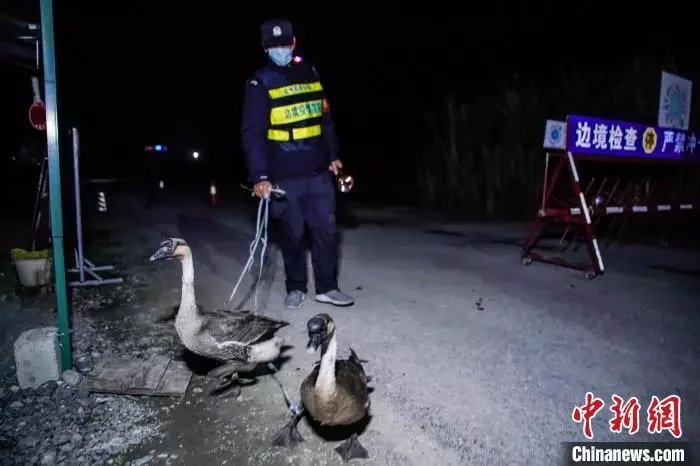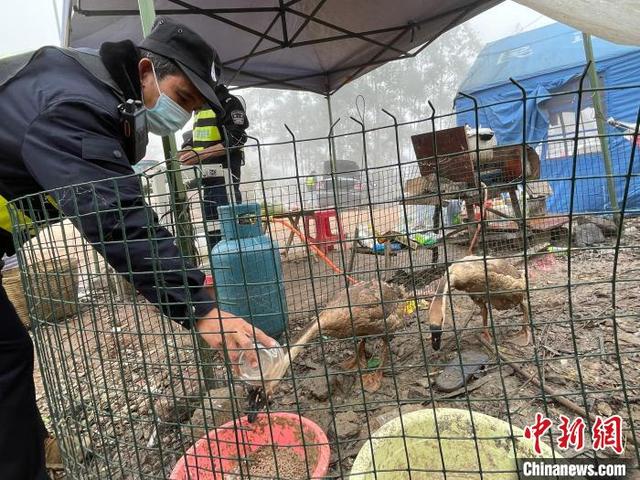
Chinese Border Patrols Rely on Geese to Keep Illegal Immigrants at Bay
Published on February 14, 2022 at 11:38 AM by Mc Noel Kasinja
For over half a year now, border control points in Longzhou County, along China’s border with Vietnam have been using geese as part of their arsenal of detecting and apprehending illegal immigrants.
As part of China’s strategy to prevent the spread of Covid-19, the country has taken a very hard stance on illegal immigration, with border patrols and control points playing a big part role. However, China’s a big place with a long border, so keeping people out isn’t the easiest thing to do. In Longzhou, a county in Guanxi Province, the border with Vietnam stretches for 184 kilometers on land and 22 kilometers on waters, with many trails and paths for patrols to keep an eye on. Luckily, since last summer, they have had a new secret weapon in their arsenal – geese.
In June of last year, Longzhou County took the lead in testing geese as part of a complex strategy to prevent immigration and soon reported surprisingly positive results. Apparently, geese proved to be much more alert to strangers and unusual noises than dogs, helping border agents to capture several people trying to enter the country illegally.
By September of last year, geese teams were already being deployed to border control points along Longzhou’s border, and before long, every border control team featured at least a pair of geese. According to China News, two geese, one dog, and two local border residents represent the “standard” border control team in the county these days.

Many villages and towns in Longzhou County are surrounded by high mountains, dense forests, and a spiderweb-like network of paths that people can use to sneak into the country. However, the introduction of geese has proven very effective at preventing immigration and the smuggling of various goods and wildlife.
“The geese are very sensitive to sound,” Li Fei, a local border control agent stationed in Naguan, told reporters. “They will scream when there is a slight disturbance, and they will scream even louder when they see strangers.”

In fact, geese have proven such a valuable asset in Longzhou that they have been promoted in other districts of Chongzuo City in recent months. There are now more geese than dogs involved in China’s epidemic prevention centers on the border with Vietnam.
There are currently about 400 dogs and 500 geese distributed between the more than 300 border epidemic prevention and control checkpoints, and the number of birds is expected to increase even more.


